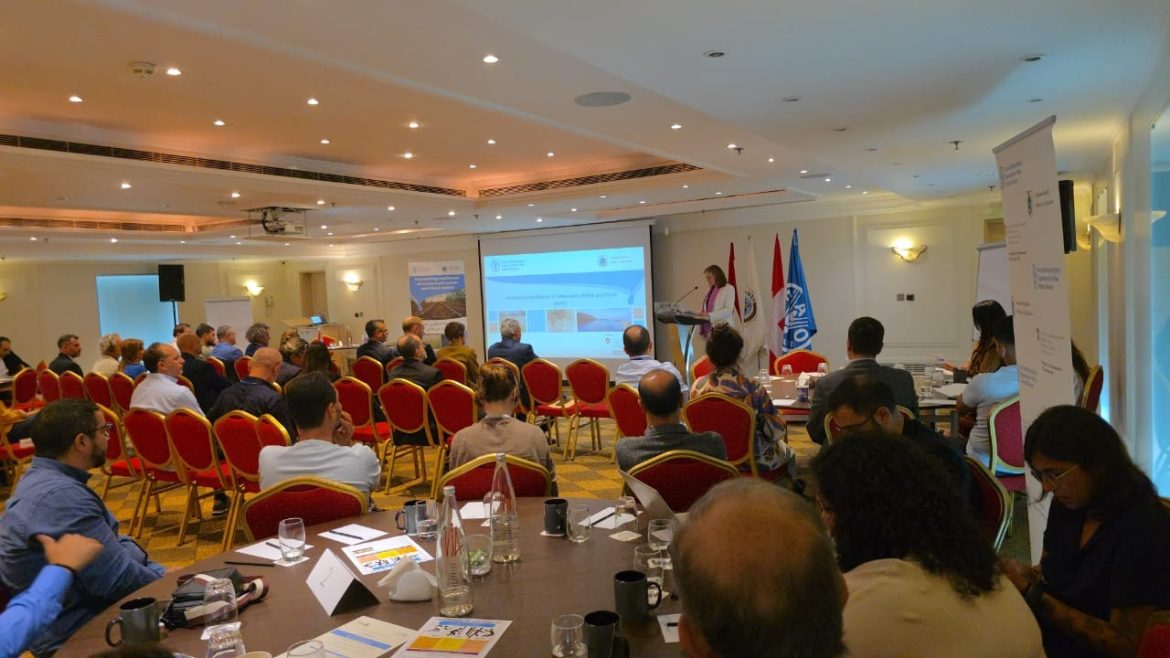“Increasing Resilience of Lebanon’s Water and Food Sector”
(Beirut, October 16, 2025): The Ministry of Agriculture, in collaboration with the Food and Agriculture Organization of the United Nations (FAO) in Lebanon, launched today the three-year project “Enhancing Resilience of Lebanon’s Water and Food Sector”, supported through a contribution from Switzerland, alongside FAO’s ongoing efforts to mobilize further co-financing for the project’s full implementation.
The project aims to achieve long-term development and recovery, by strengthening the foundations of a more sustainable, inclusive, and resilient water and agri-food system. The project aims to support Lebanon’s recovery by promoting the sustainable management of natural resources, strengthening agri-food value chains, and fostering collective action that enhances accountability between public service providers and the communities they serve. It will also promote decent work opportunities for seasonal agricultural workers, help prevent conflict over scarce water resources, and strengthen institutional development to improve service delivery and governance.
The event took place in the presence of Nizar Hani, Minister of Agriculture, Suzy Howayek representing Joseph Saddi, Minister of Energy and Water, Nora Ourabah Haddad, FAO Representative in Lebanon, and Vincent Pasquier, Deputy Head of Mission of the Embassy of Switzerland to Lebanon and Syria.
The launch and inception workshop gathered representatives from government institutions, development partners, and national stakeholders to present the project’s objectives, structure, and planned activities. The workshop also served as a platform to strengthen coordination, build joint ownership, and refine strategies for effective implementation.
In his speech, His Excellency the Minister of Agriculture, Dr. Nizar Hani, expressed his pride in the partnership between the Ministry of Agriculture, the Food and Agriculture Organization of the United Nations (FAO), and the Government of Switzerland to launch this important project, which aims to strengthen the resilience of Lebanon’s water and food sectors.
He added: “This project reflects the Nexus Approach linking agriculture, water, and energy—an approach that has become a necessity rather than an option to achieve integrated and sustainable management of our natural resources. Agriculture is not only a source of food but also a major consumer and producer of water and energy, which calls for coordinated policies that ensure balance between agricultural production and the protection of resources.”
He continued: “Through this project, we aim to promote Nature-Positive Agriculture—agriculture that restores soil fertility, rebalances ecosystems, and enhances farmers’ ability to withstand climate change and economic crises.”
His Excellency the Minister of Agriculture thanked the international partners for their continuous support and expressed his hope that this workshop would serve as a starting point for practical cooperation that strengthens food and water security in Lebanon within a national vision for sustainable development.
In her intervention, Suzy Howayek representing Joseph Saddi, Minister of Energy and Water, she said: “Strengthened coordination between the Ministry of Energy and Water and the Ministry of Agriculture is essential to ensure that irrigation—the country’s largest water consumer—is managed efficiently and sustainably. Joint planning and data-driven decision-making are key to aligning agricultural demand with available water resources and maintaining long-term water and food security.”
Mr. Vincent Pasquier, Deputy Head of Mission of Switzerland to Lebanon said: “A critical pillar of this project is the strengthening of Lebanon public institutions… for service delivery and thus creating a relationship of trust and accountability between the government of Lebanon and citizens.”
FAO Representative in Lebanon, Ms. Nora Ourabah Haddad said: “This project comes at a crucial time for Lebanon, as communities face mounting challenges in securing access to water and food. By working hand in hand with our national partners and with the generous support of Switzerland, we aim to foster sustainable solutions that improve people’s lives today while protecting resources for future generations.” She added: “The project reflects the shared commitment of Lebanon, FAO, and Switzerland to promote sustainable development and resilience, ensuring that communities across the country have access to secure and sustainable food and water systems.”
The workshop featured presentations on the project and concluded with a thematic roundtable on Water and innovation, and Collective Action, emphasizing the need for innovative and coordinated approaches to address Lebanon’s pressing water and food challenges.

